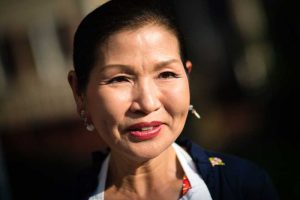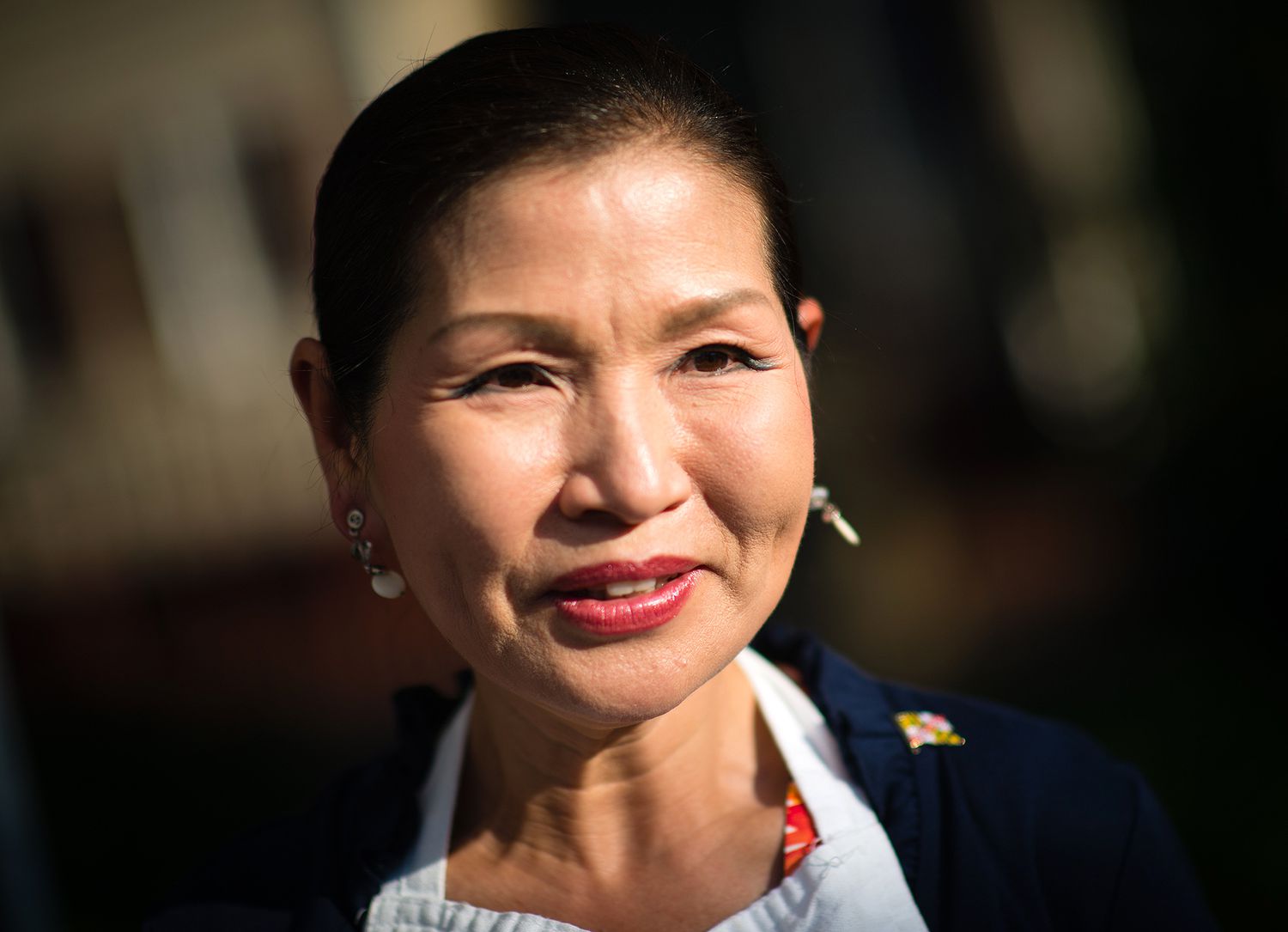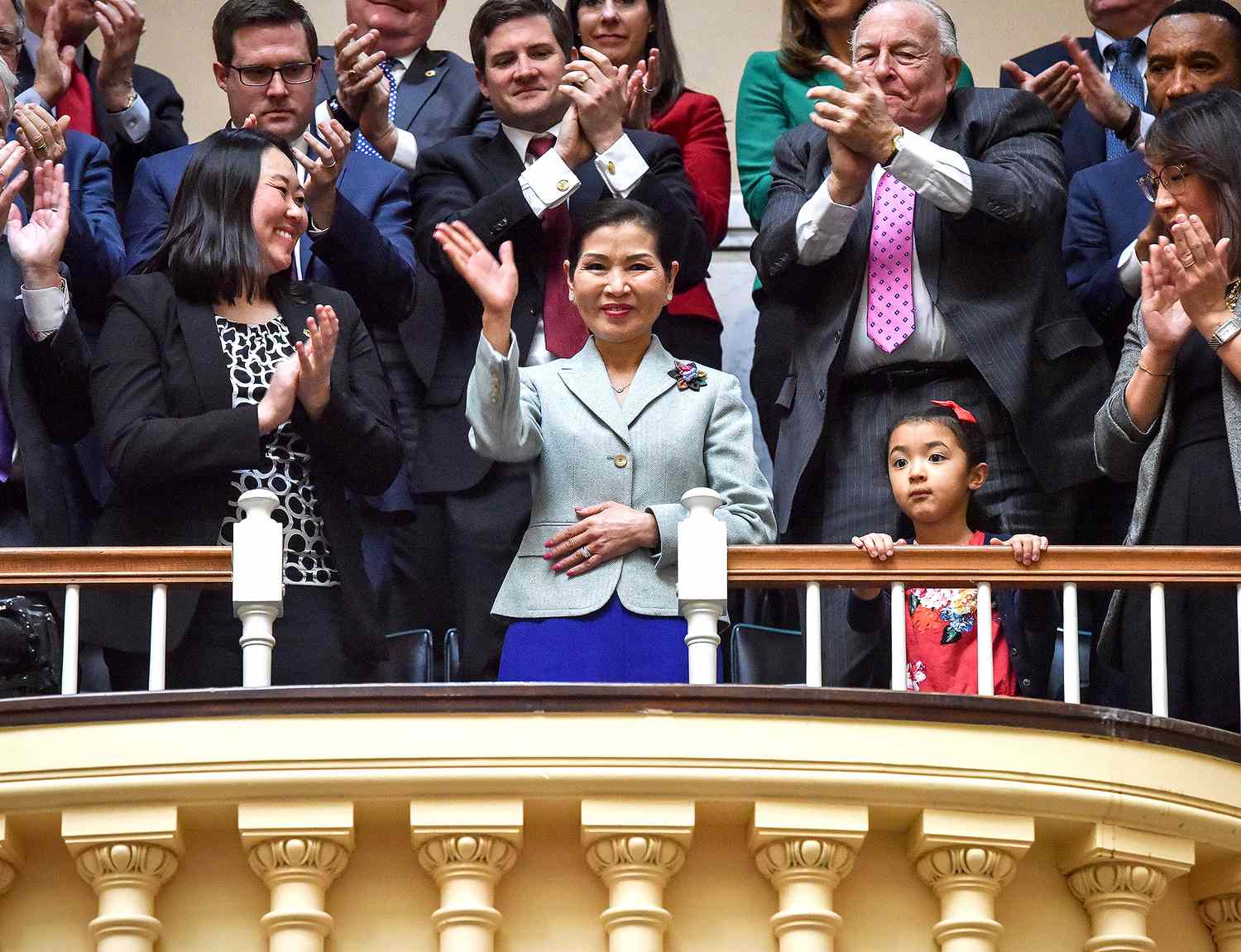Maryland's Korean-American First Lady Tells Her Life Story and Denounces Violence Against Asians

Yumi Hogan is telling her story of how she immigrated to the United States from South Korea "to pursue the American Dream" — and how, over 40 years later, she is part of a community that is still facing harrowing hatred.
In an impassioned essay for CNN, the wife of Maryland Gov. Larry Hogan recalls being a single mom in America after leaving her family's farm in her home country, struggling to make ends meet for the sake of her three daughters while being "in a completely different world culturally" than she had known her entire life up until that point.
"My family worked hard, and I was taught to be sober and diligent — to never get lazy," Yumi, 61, writes of her own childhood, as the youngest of eight. "Leftover and broken eggs that couldn't be sold from the farm were my snack. I walked 2 miles every day between home and school since there was no bus available."
When she moved to the U.S., Yumi "didn't speak much English" and, given her status as a single mother having to provide for her kids, "didn't have time to do anything" for herself.
"My life didn't seem to be close to the American Dream. Without letting my daughters know, I would dry my tears quietly, remembering my childhood. I missed everything familiar from my homeland," Yumi writes. "But I never, never gave up."
Never miss a story — sign up for PEOPLE's free daily newsletter to stay up-to-date on the best of what PEOPLE has to offer, from juicy celebrity news to compelling human interest stories.
Yumi remembers how her older two daughters "took part-time jobs" when they got old enough, to help her out. He girls "worked and studied hard" and "were the reason I went through all the hard times, and ultimately were the ones who helped me push through."
They also encouraged their mom to go back to school, telling her it was "[her] turn" to "follow [her] own passion and dream," Yumi writes. As a result, she earned two college degrees and began teaching at MICA, which she has continued to do for the last decade. (She met her husband, the future governor, at an art show in 2001.)
And while Yumi and other Asian Americans "have worked hard, served our communities, started businesses and raised families here, often while struggling to learn a new culture and a new language," leading to them be "an indispensable part of this country," they are still facing "discrimination and racism" today, including in the form of violence.
"Some may share common experiences — no support or response was provided by the police when hate crimes or incidents happened; their windows were broken by aggressors; discrimination or bamboo-ceilings prevented them from being promoted at work; they were asked where they 'originally' or 'really' come from; their children were bullied and told they 'smell bad' due to their lunch box with Asian food; they were insulted with slanted-eye gestures," she writes.
"We Asian Americans are a proud people," Yumi writes. "Instead of fighting back or speaking up against this hate, we worked that much harder to prove our worth. We focused on the problems right in front of us — finding ways to make ends meet, feed our families, and educate our children."
But now," she continues, "as our nation grapples with the COVID-19 pandemic, hurtful words have too often escalated to brutal acts of violence."
Yumi, the first Korean-American first lady of a state, writes that the U.S. is still "envy of the world because of its diversity," something that "makes us stronger, and it is built on embracing, understanding, and enjoying the differences among us."
But while her husband has supported and passed legislation "that improve and expand the reporting of hate crimes," she believes "institutions and laws are not enough."
"Our society should evolve to the point where Asian Americans are considered Americans without any questions," she writes.
"My fellow Asian Americans weep over the rising number of attacks against our people. But in the face of this senseless violence, I see a new strength, determination and resilience in our eyes. We will not stay silent anymore," she wrote. "But we will also not respond with vengeance. Instead, we will love each other more, we will support each other more and we will stand together. We will make sure the overwhelming outpouring of support from leaders turns into real and lasting action that protects our children and grandchildren."
Yumi's essay comes amid a rise in violence against Asian Americans and Pacific Islanders, including the March 16 shootings at three Atlanta-area spas that killed eight people, six of whom were Asian women.
A recent report from the Center for the Study of Hate and Extremism at California State University, San Bernardino, found that anti-Asian hate crimes increased 150 percent in 2020 in America's 16 largest cities, despite overall hate crimes dropping 7 percent in those cities.
If you've been attacked or witnessed an attack, please contact your local authorities. You can also report your incident here. To learn more and to report crimes, go to: Asian Americans Advancing Justice, Stop the AAPI Hate, National Council of Asian Pacific Americans, Asian Americans Advancing Justice-LA, and Asian Pacific Policy & Planning Council.
Source: Read Full Article


